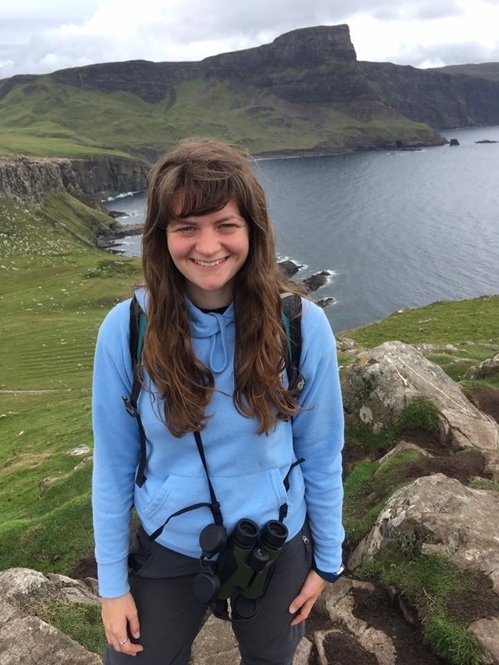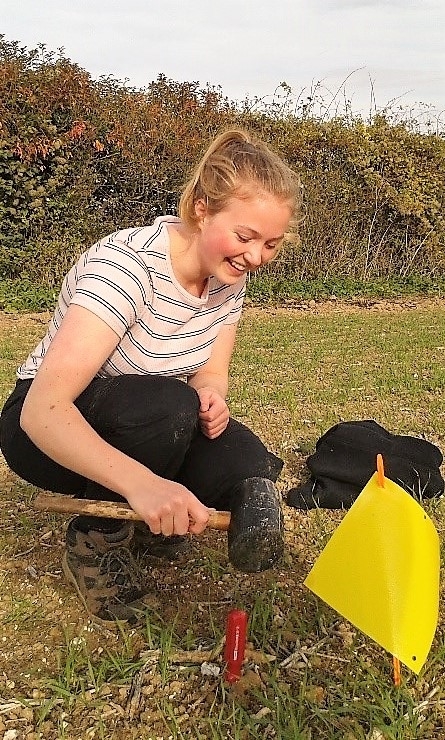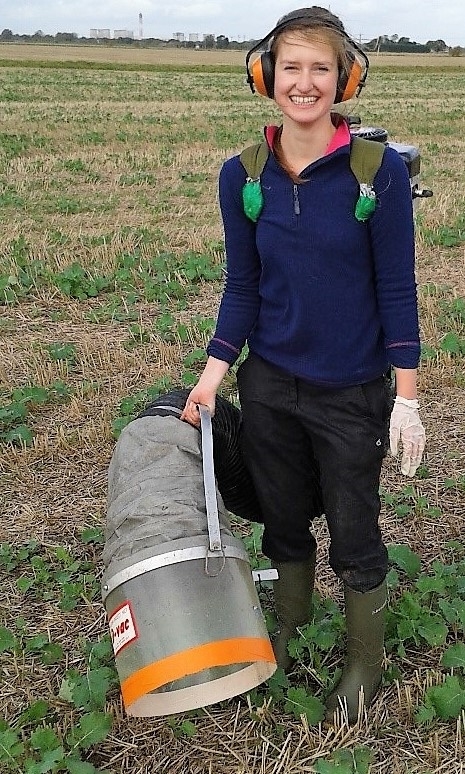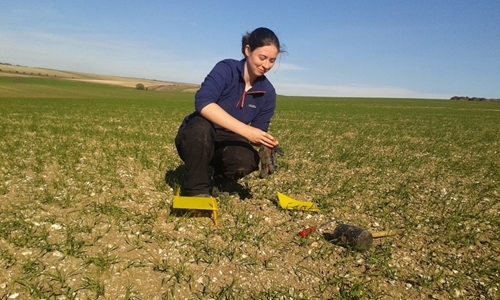Dr. Niamh McHugh

What do you do?
I’m a postdoctoral researcher with the Farmland Ecology team, working on efforts to enhance lowland agriculture for the benefit of farmland birds and, more recently, bats.
How did you get here?
I have always been passionate about ornithology and in 2012 I was lucky to be offered a PhD with Imperial College London and the GWCT investigating whether agri-environment schemes in the UK are fulfilling their conservation potential for farmland birds. This lead directly to my current post at the Trust which has allowed me to further pursue my research interests on all things farmland.
Ornithology is however not just my day job! I am an active bird ringer, which has allowed me to take part in bird monitoring projects across the world. In 2015 I travelled to Canada, working with Environment Canada, to investigate the importance of the James Bay coast as an autumn stopover site for migrating waders and last year I spent a week with the Shiants Auk ringing group who have been systematically monitoring seabirds on the Shiants since the 1970s.
Who inspires you?
The pioneering farmland ecology research of the late Dick Potts, former director-general of the GWCT, is a great inspiration to me. Dick developed the GWCT’s Sussex Study which is now the longest running survey of farmland ecosystems in Europe. I was lucky to experience Dick's enthusiasm for farmland bird research first hand and enjoyed time spent counting partridges with him on the Sussex Study site.
Do you have any advice for aspiring scientists?
Make sure you pursue a field of research you love, genuine passion for a subject will help you through challenging days.
Ellen Knight

What do you do?
I’m a student in the Farmland Ecology department at the GWCT, which mainly involves collecting and identifying farmland invertebrate samples in both the lab and the field.
How did you get here?
I’m a current zoology student at the University of Exeter and am taking a year out to do this placement. Whilst I don’t have much research experience yet, I’ve had some fantastic opportunities to travel and collect data, from surveying turtles in Mexico to observing fulmars in the North of Scotland.
Who inspires you?
I was inspired to get into science by the other women in my family, especially my mum who completed her biology degree whilst raising me. Growing up, I was always encouraged to try my hardest and to take an interest in the world around me.
Do you have any advice for aspiring scientists?
Take every opportunity you can get. Even if you don’t think you can do something, you’ll be surprised by how much you can achieve just by showing up.
Belinda Bown

What do you do?
I am a research assistant in the Farmland Ecology department, I am responsible for data collection and training research skills including invertebrate identification.
How did you get here?
Having a rural background, I have always had an interest in the farmed landscape. This interest led to an Environmental Science BSc degree at the University of Nottingham; during my degree I spent a placement year in the Farmland Ecology Unit. Using skills gained from this placement, my final-year project assessed the use of the University Farm's beetle bank by ground beetles and spiders. After graduation, I returned to the department as a research assistant. The projects I work on investigate how land management impacts farmland wildlife, particularly beneficial invertebrates. I am fortunate to visit farms across England and meet many people who are passionate about sustainable agriculture and conservation.
Who inspires you?
I am inspired by Beatrix Potter’s passion and commitment to countryside conservation. Her love of nature and conservation was not just shown through her incredible drawings and captivating children’s books, but also from the legacy she left, the Lake District. As an important environmental campaigner, she supported local tradition and livelihoods. She was also the first woman President of the Herdwick Sheep Breeder’s Association. After she died, she left more than 4000 acres of land to the National Trust to continue the preservation of the beautiful landscape.
Do you have any advice for aspiring scientists?
Stretch yourself and keep open-minded.
Amy Corrin

What do you do?
I’m an undergraduate student currently on a placement year with GWCT’s Farmland Ecology department.
How did you get here?
I’m studying Zoology at the University of Cumbria and am currently spending a year in industry with the GWCT. Both my University and the Trust have provided me with opportunities to experience a range of different research techniques, and I am looking forward to experiencing and learning more!
Who inspires you?
My mum inspires me, both in the world of science and in life in general. Since I was young, she has always encouraged me to be curious about the natural world, which eventually led me to pursue a degree in Zoology. She is also the type of person that continuously strives to expand her knowledge and learn new skills, which is what motivates me to continue to learn and grow.
Do you have any advice for aspiring scientists?
Don’t be afraid to ask questions and be inquisitive about new subjects.